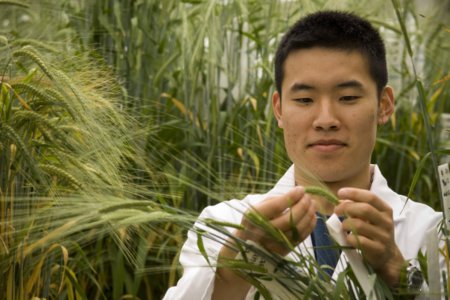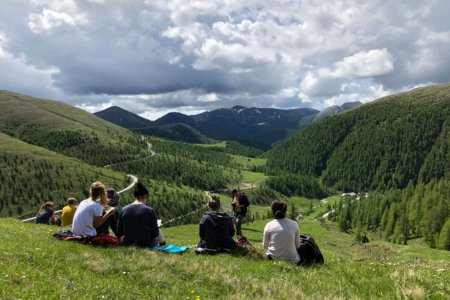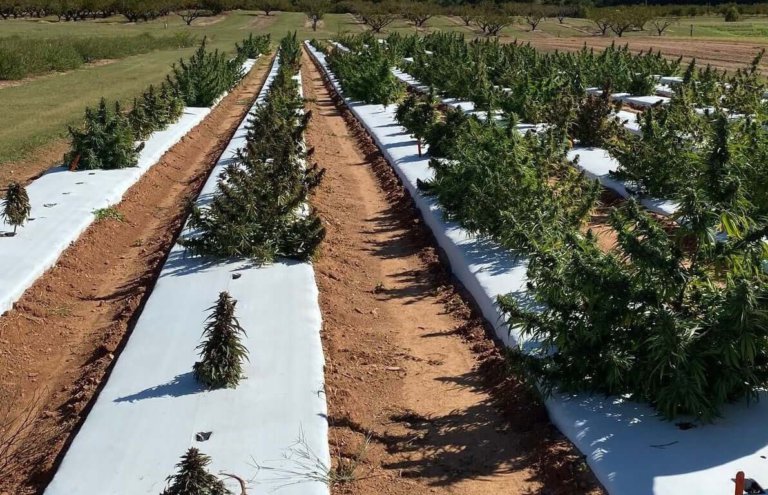
Without agriculture, there would be no cities, trades or the know-how to solve some of the most pressing challenges of our time. The United Nations projects that the world population could reach 9.7 billion by 2050. Food demand is also expected to increase by 59% to 98% by 2050. The rise of climate change can already be felt across the globe.
Little wonder why more universities have started encouraging their students to step up. They’ve designed various programmes to cater to the passions of students who already have an eye on the future.
Their efforts tie back to filling the number of vacancies that are only increasing and will continue to do so in decades to come. Agriculture expertise is scarce in the world yet vital to humanity’s survival and progress. That said, if you’re an aspiring agriculturist, horticulture, fishery manager, animal scientist, or biotechnologist; you’re in luck. These universities have postgraduate degree programmes with your name on it:
Fort Valley State University
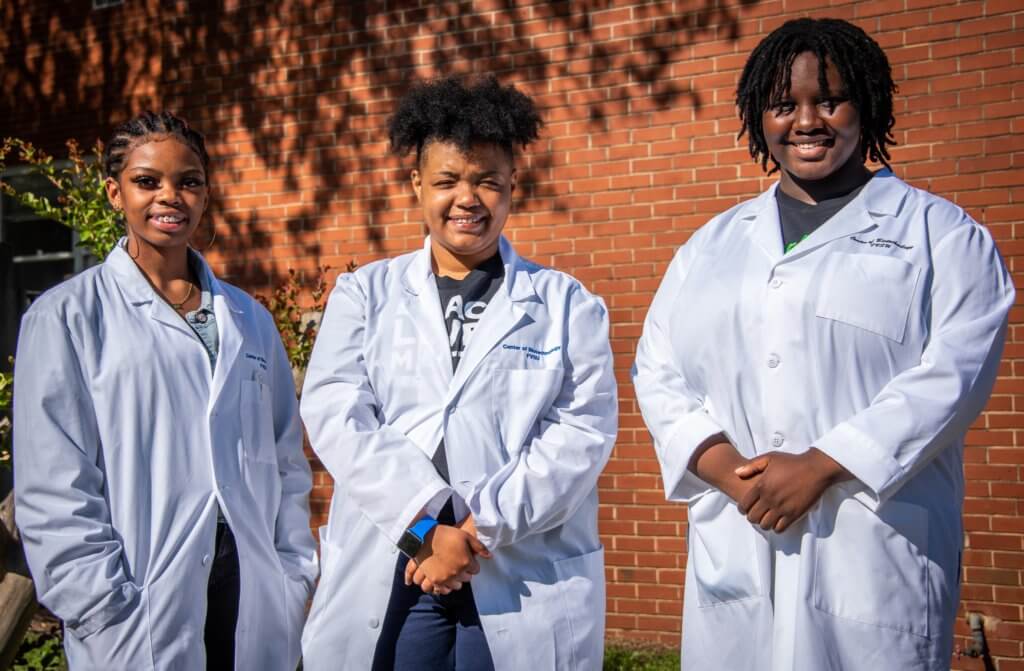
The College of Agriculture, Family Sciences and Technology is home to three topical postgraduate degrees: The Master of Science in Animal Science, Master of Science in Biotechnology, and Master of Public Health. Source: Fort Valley State University Facebook
Located in the heart of Georgia, Fort Valley State University (FVSU) exudes a family feel thanks to its quaint size. However, its endless array of resources and reputation for excellent research speak volumes, making it the perfect place for a world-changing education.
Its 650-strong (and growing) student body within the College of Agriculture, Family Sciences, and Technology are testament to this. Graduates are already on their way to sparking change world-wide. If you’re keen to join them, you could opt to pursue one of three pathways to postgraduate success.
The Master of Science in Animal Science provides an advanced understanding of livestock and other animal species as it relates to their biological systems, behavior, health, reproduction, growth, and management of their living environments, as well as processing and utilization of animal products, such as meat, milk, and cheese. Our graduates are prepared for careers in animal production, research, industry or for entrance into professional schools, including veterinary, medical, and dental.
Meanwhile, the Master of Science in Biotechnology provides an understanding of interdisciplinary, cutting-edge science that encompasses biology, plant and animal sciences and engineering. It is used as a scientific vehicle for many purposes including enhancing crop yield and quality, developing pharmaceuticals, improving health and nutrition, and providing new methods for removing environmental toxins etc. Students can have specialization in either plant, animal, or applied biotechnology areas. The program is designed to take students to the next level by preparing them for positions in the pharmaceutical, biotechnology, consulting, and high-tech industries, as well as government laboratories and has near perfect placement rate.
The college also offers a Master of Public Health, developed in response to the nation’s need for improved health opportunities on local, state, regional and global scales. It offers two courses of study — Environmental Health and Agricultural Epidemiology. Both routes prepare you to identify pressing matters and innovate effective solutions to a variety of environmental conditions affecting the health of minority, rural, and disadvantaged populations. An MPH degree will allow students to pursue terminal degrees in several fields including medical, dental, and veterinary medical studies as well as being attractive applicants to public health agencies including the CDC, EPA, and USDA.
To discover your path to securing a better future for our generation and the ones to come, click here.
Purdue University
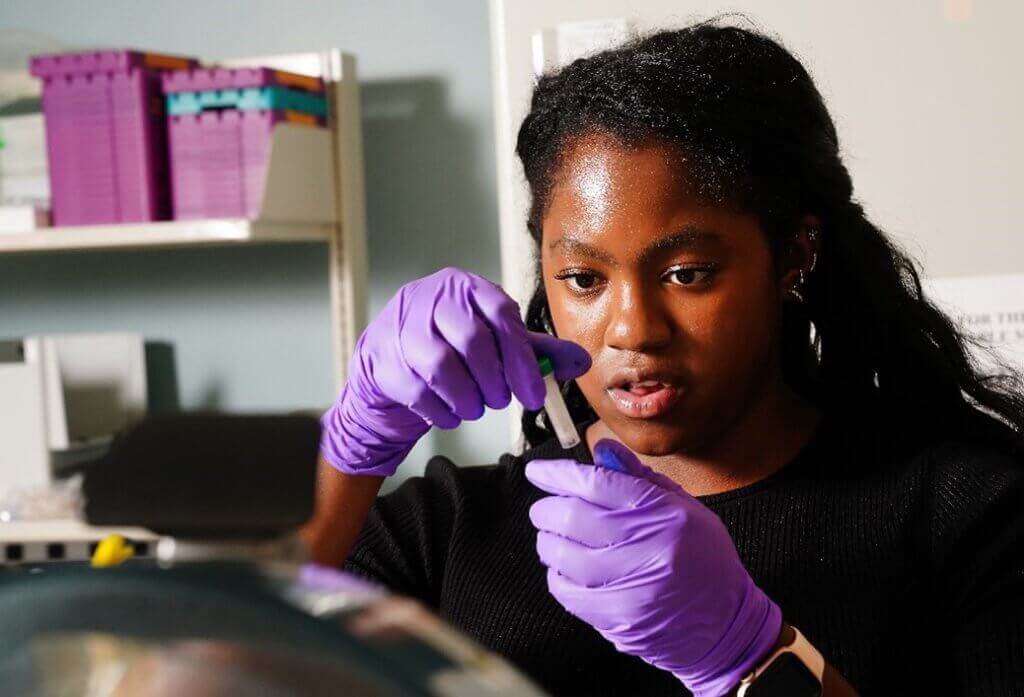
Purdue Agriculture is a global leader that offers students a world of possibilities to explore. Source: Purdue University College of Agriculture
A 96% rate of employment or enrollment in advanced degree programs within a year of graduation. Transformative experiences that change your outlook and world view, with options ranging from undergraduate research to studying abroad to leadership training and internship opportunities. Administrators, faculty and staff dedicated to student support and advocacy and committed to creating a diverse, equitable and inclusive culture set within a highly ranked and world-renowned university.
These features define Purdue University’s College of Agriculture, one of the world’s leading colleges of agricultural, food, life and natural resource sciences.
Purdue Agriculture offers over 30 majors in a wide range of disciplines, such as business and marketing; wildlife and forestry; food and fermentation sciences; landscape architecture; animal sciences; environmental and natural resources engineering; plant sciences; sustainable food and farming; and biochemistry.
As a Purdue Agriculture graduate, you can capitalise on the strong employment market for graduates with interests and expertise gained from the majors offered here. To learn more about how Purdue Agriculture prepares students to make a difference, click here.
Oregon State University

The College of Agricultural Sciences is a fundamental part of Oregon State University’s land-grant mission. Source: Oregon State University Facebook
The College of Agricultural Sciences at Oregon State University is the chief source of knowledge relating to agricultural and food systems, and a leader in the study of natural resources, life sciences, environmental quality, and rural economies.
The college is a fundamental part of the university’s land-grant mission, creating knowledge to solve problems and discover new opportunities for the future.
Its postgraduate lineup consists of programmes in Animal Sciences; Applied Economics; Botany and Plant Pathology; Crop Science; Entomology; Fisheries Management; Food Science and Technology; Horticulture; Microbiology; Organic Agriculture; Toxicology; Wildlife Management; and more.
“We are uniquely able to lead advances in agricultural competitiveness and resilience, innovation for health, markets and access to food, working and natural landscapes, and coastal food systems and conservation,” says Reub Long Dean and Director, Dr. Alan Sams.
“It is hard to think of another agricultural college anywhere that has that breadth of expertise across such diverse areas and ecosystems.”
University of Guelph

The OAC offers postgraduate degrees in Animal Biosciences, Environmental Sciences, Food Safety and Quality Assurance, Food Science, Environmental Development Studies, and more. Source: University of Guelph Facebook
The Ontario Agricultural College (OAC) of the University of Guelph is globally renowned for its research and teaching. It is home to a passionate group of 3,700 diploma, undergraduate and graduate students; 35,000 alumni; 140 faculty; and 600 staffers.
All share the same purpose: to improve life by generating knowledge and creating innovative solutions for food, agriculture, communities and the environment.
Within the university, the OAC hosts the largest group of aspiring postgraduates. Across its six academic units — Department of Animal Biosciences, Department of Food, Agricultural and Resource Economics, Department of Food Science, Department of Plant Agriculture, School of Environmental Design and Rural Development, School of Environmental Sciences — 700 students are thriving.
To join them, you could choose to pursue a master’s degree in Animal Biosciences, Environmental Sciences, Food Safety and Quality Assurance, Food Science, Environmental Development Studies, Landscape Architecture, Neuroscience, or Plant Agriculture, amongst others.
*Some of the institutions featured in this article are commercial partners of Study International








